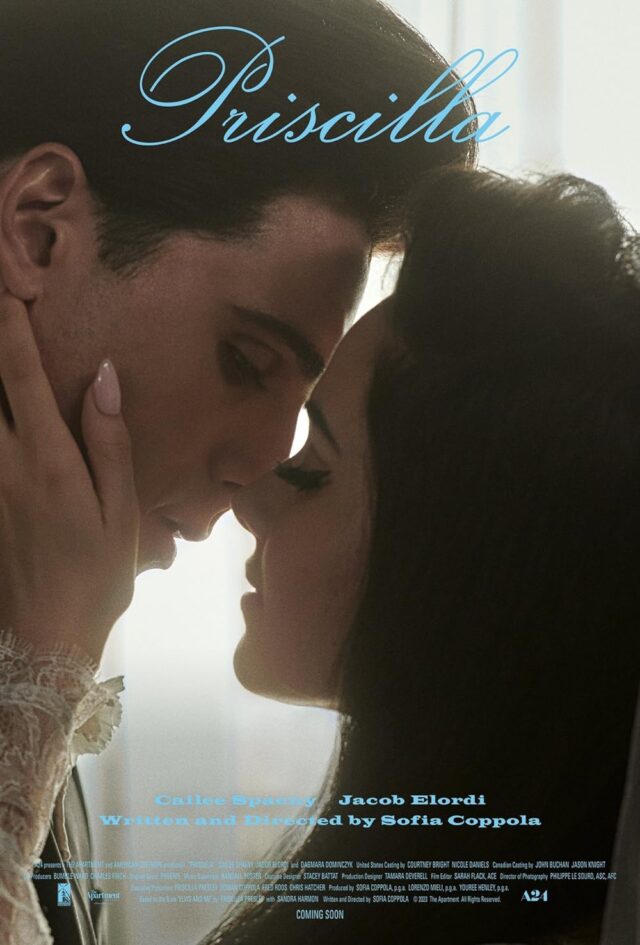By Bella Whitmore | Intern
Based on her personal memoir, “Priscilla” highlights the untold story of Priscilla Presley from before she met Elvis Presley to after their separation in 1973. From a young schoolgirl stationed with her family in Germany to the wife of the most famous man in the world, Priscilla’s life is laid out beautifully and masterfully by director Sofia Coppola.
The importance and the timing of this film cannot be overstated, as it comes only a year after the iconic “Elvis” movie.
“Elvis” succeeded in painting the musical icon in a very positive light and captivating audiences with its flashiness and colorful storytelling. The style of “Priscilla” could not be more different. The subdued and slow nature of the film almost serves as a critique of the cheap thrills and showy nature of “Elvis,” revealing that extravagance does not equal substance.
She’s everything, and he’s just Elvis.
This film takes us on the tumultuous and astounding journey of Priscilla and is not afraid to show audiences the truth of who Elvis was behind closed doors. From physical abuse to emotional and psychological manipulation, “Priscilla” tells all. I can remember more than one instance where I, as well as the rest of the audience, audibly gasped.
Coppola is famous for her powerfully feminine movies, showing how the two themes are not mutually exclusive, so who better to entrust with the story of Priscilla? Coppola’s stylistic choices — from the gritty soundtrack to the color pairing to the wardrobe — are nothing short of amazing. Her film is incredibly visually appealing in every sense, mirroring Priscilla’s focus on beauty and aesthetics within her own life.
The height difference between the two actors playing the titular roles — 5-foot-1-inch Cailee Spaeny and 6-foot-5-inch Jacob Elordi — has recently taken the internet by storm, but it also shows a subtle yet deliberate choice of symbolism. By showing Elvis towering over Priscilla and referring to her with names such as “little one,” Coppola portrays Elvis in a very dominant and even predatory light. This is not slander or misrepresentation; it is simply highlighting the truth that had been hidden for so long.
The emphasis on Priscilla’s perspective is truly a breath of fresh air from the whirlwind that was Elvis’ life full of addiction, adultery and abuse. We have the privilege of seeing who Priscilla truly was before, during and after Elvis. Scenes show her with her family, with her friends, going out to dinner and even taking karate classes in her free time.
Priscilla was so much more than just Elvis’ wife.
The final scene of Priscilla leaving behind not only Elvis but also Graceland — the home she had known since she was 17 years old — beautifully shows her newfound sense of agency and independence. Coppola ironically pairs this scene with Dolly Parton’s “I Will Always Love You,” showing that despite Priscilla being free of Elvis and the world of fame, a part of their souls would always be tied together. It is likely this powerful scene that actually played out in Priscilla’s real life that left her in tears at the end of the “Elvis” premiere and elevates the film to one of the greatest and most daring biopics of the last decade.



